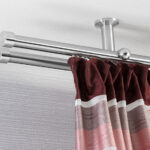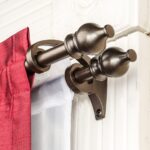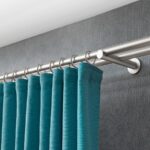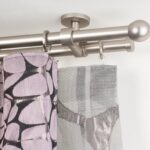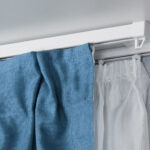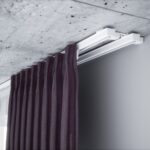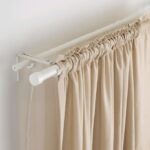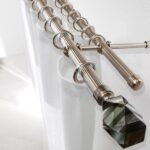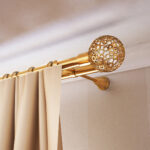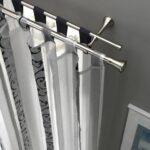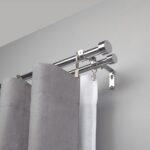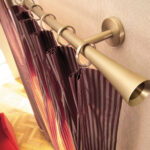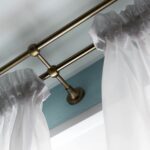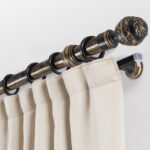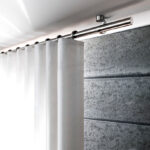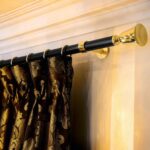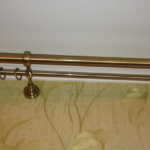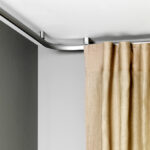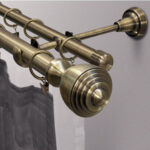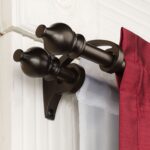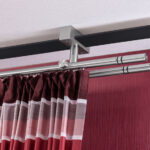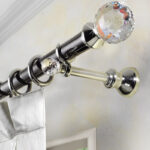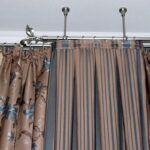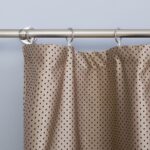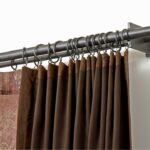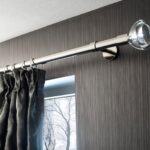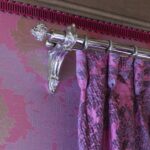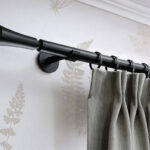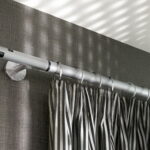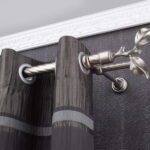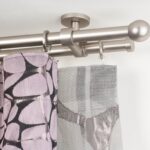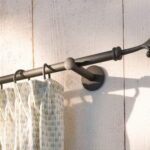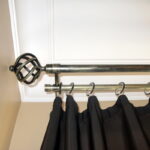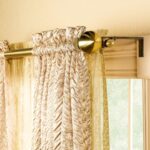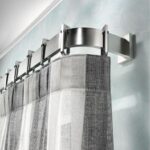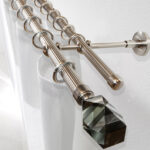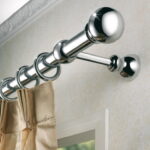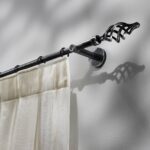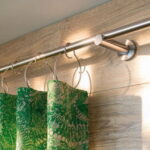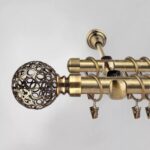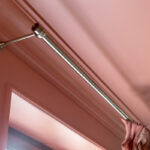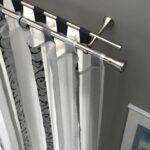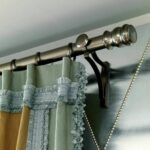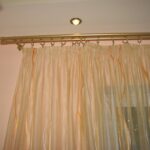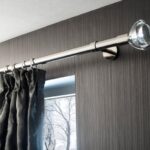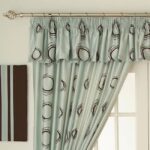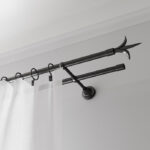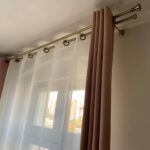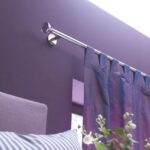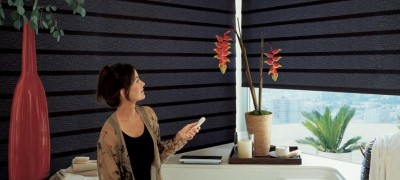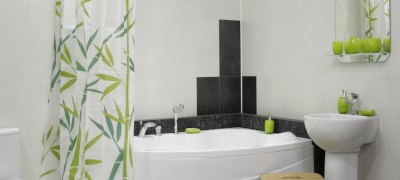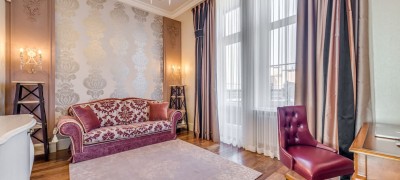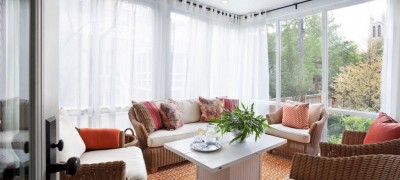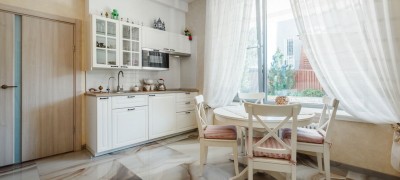Features of double-row metal curtain rods
The question "how to properly hang the cornice in the room, how it should be fixed on the wall and ceiling" is of interest to most people who decide to independently change the interior of their apartment and decorate it with new curtains or curtains. Having chosen curtains and cornice suitable for the room's decor, it is necessary to deal with the fastening and understand which option is suitable for each individual room.
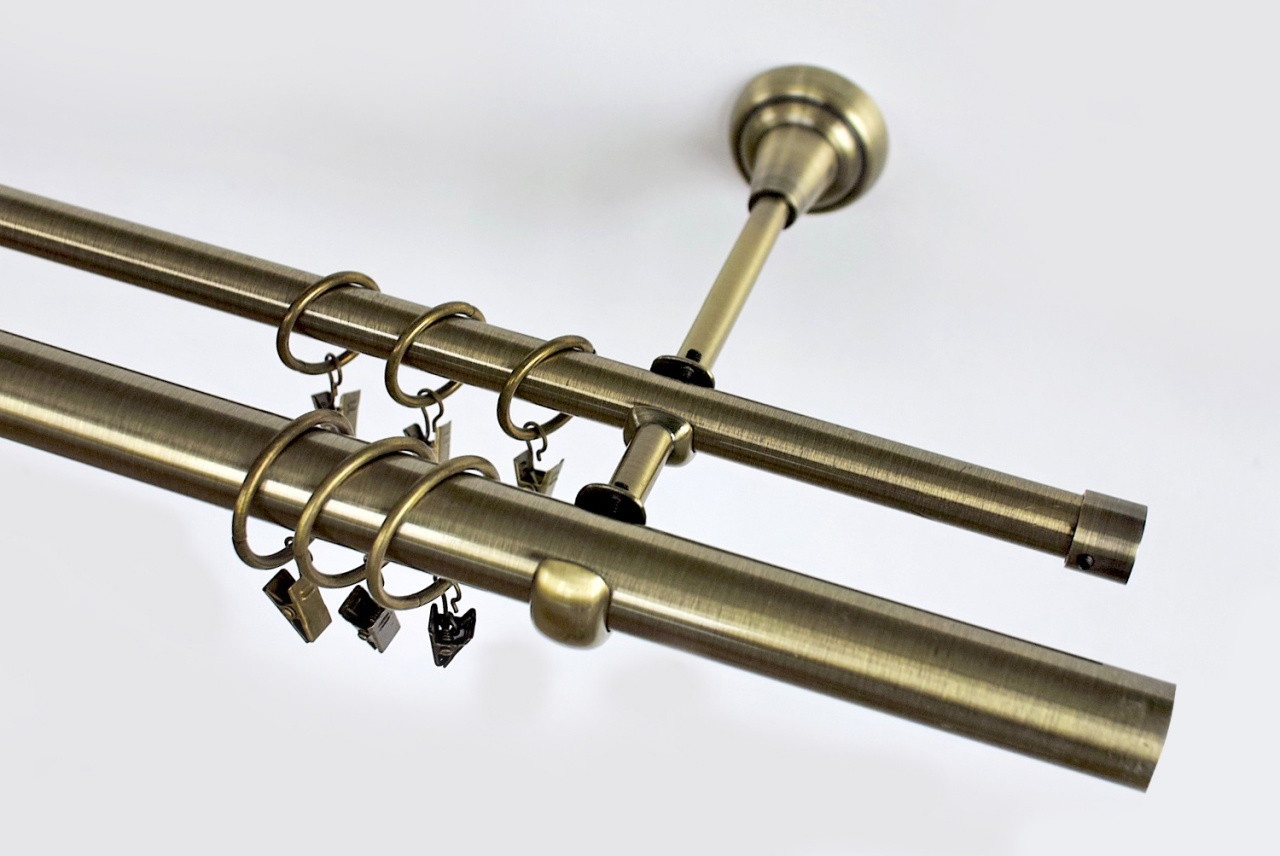
Usually, according to the type of fastening, the cornices are divided into two large groups - ceiling and wall, which must be fixed on the ceiling or on the wall, respectively, during installation. But the choice of the cornice and fastening depends on several important factors:
- Ceiling heights.
- Width of the window.
- The distance between the tiers of the cornice is the rods holding the tulle and the curtains themselves.
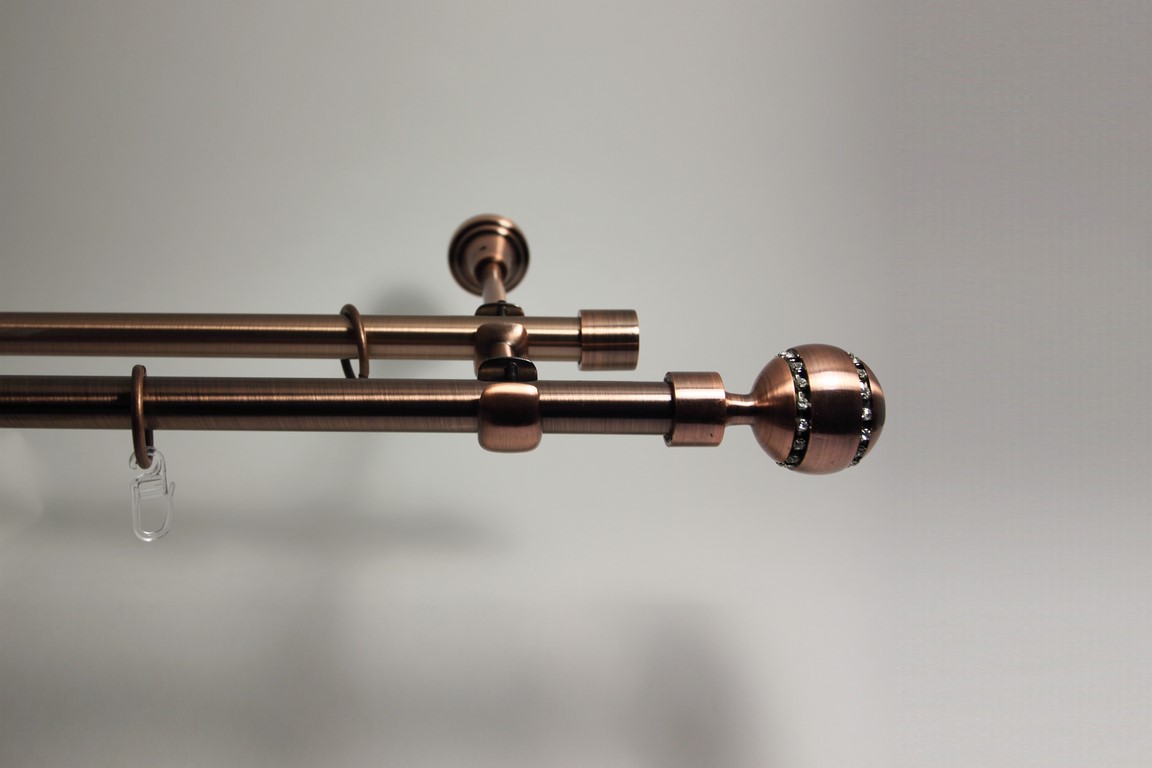
Considering these criteria, it is quite easy to choose the right curtain rod with the right type of fastening for any room and understand how to hang the curtains correctly.
Varieties of wall curtain rods
Wall-mounted curtain rails are generally divided into three categories based on the number of rows available in the structure. Therefore, cornices are:
- Single row.
- Double row.
- Three-row.
They are also divided by material of manufacture:
- Metal.
- Plastic.
- Wood.
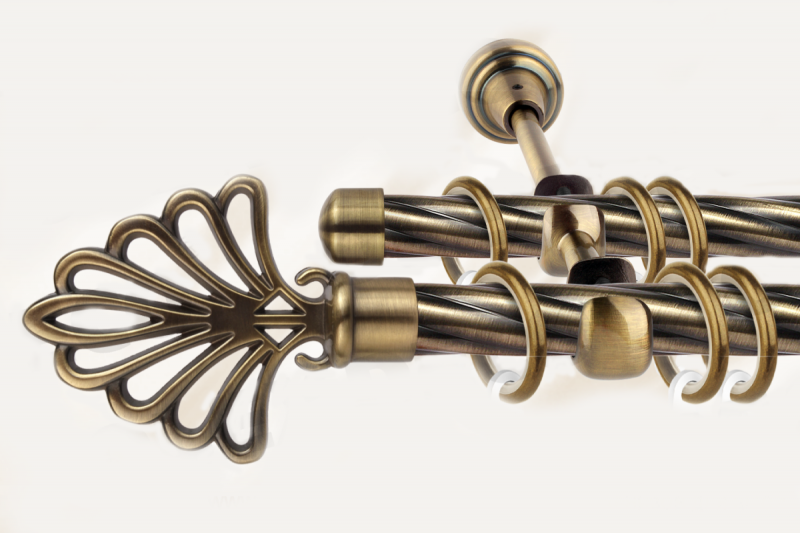
When choosing a curtain rod for a room, it is necessary to take into account not only its functionality, but also its appearance, and therefore it is important to consider different options: two-row metal, single-row plastic, and three-row wooden. Most often, of course, a two-row cornice is used, since for living rooms it is most convenient and looks beautiful, in contrast to a too small single-row or from an overly bulky three-row version.
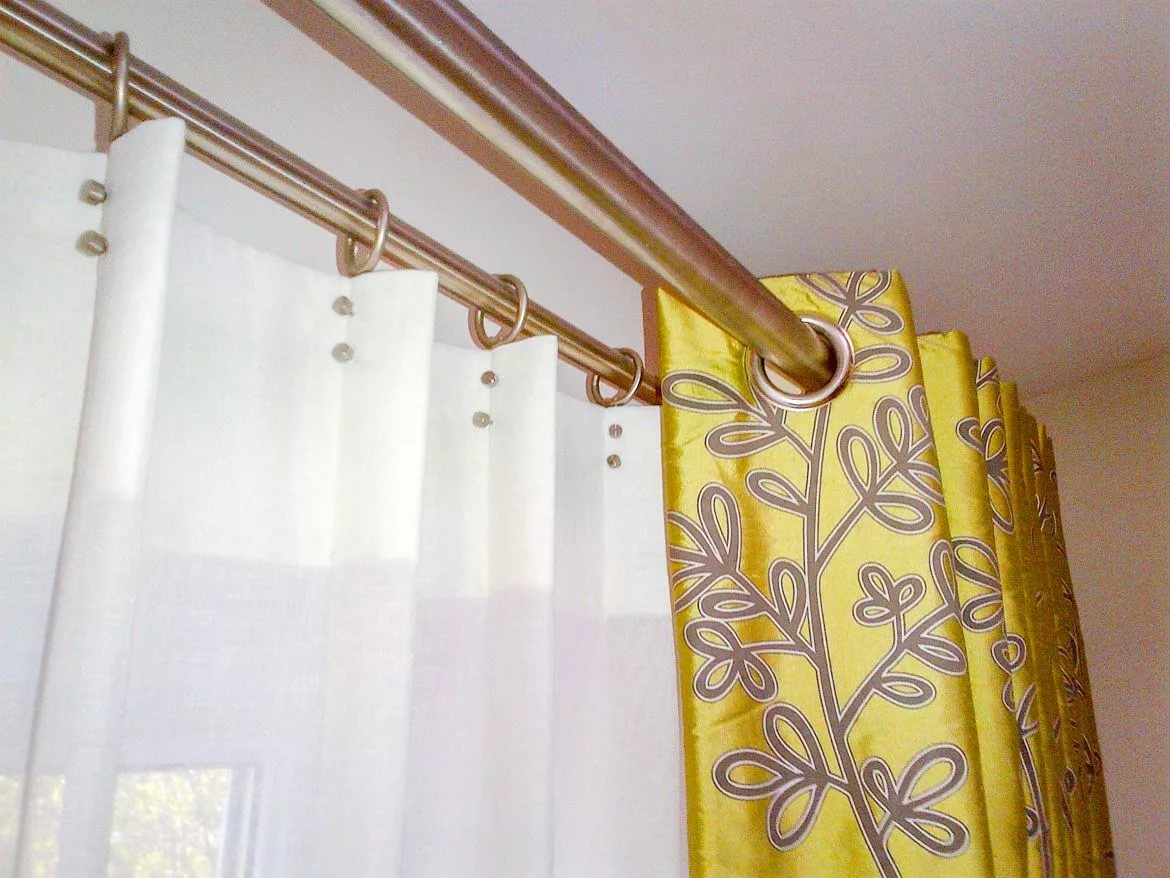
Double row
What does a double-row curtain rod look like? As the name suggests, this design contains two "rows" - two rods on which you can hang curtains and tulle. The advantage of such a cornice is its practicality - up to three or four cloths of fabric can be hung on the same structure at the same time (two curtains + two halves of tulle maximum), but with all this, it does not look bulky, heavy or ugly outwardly.
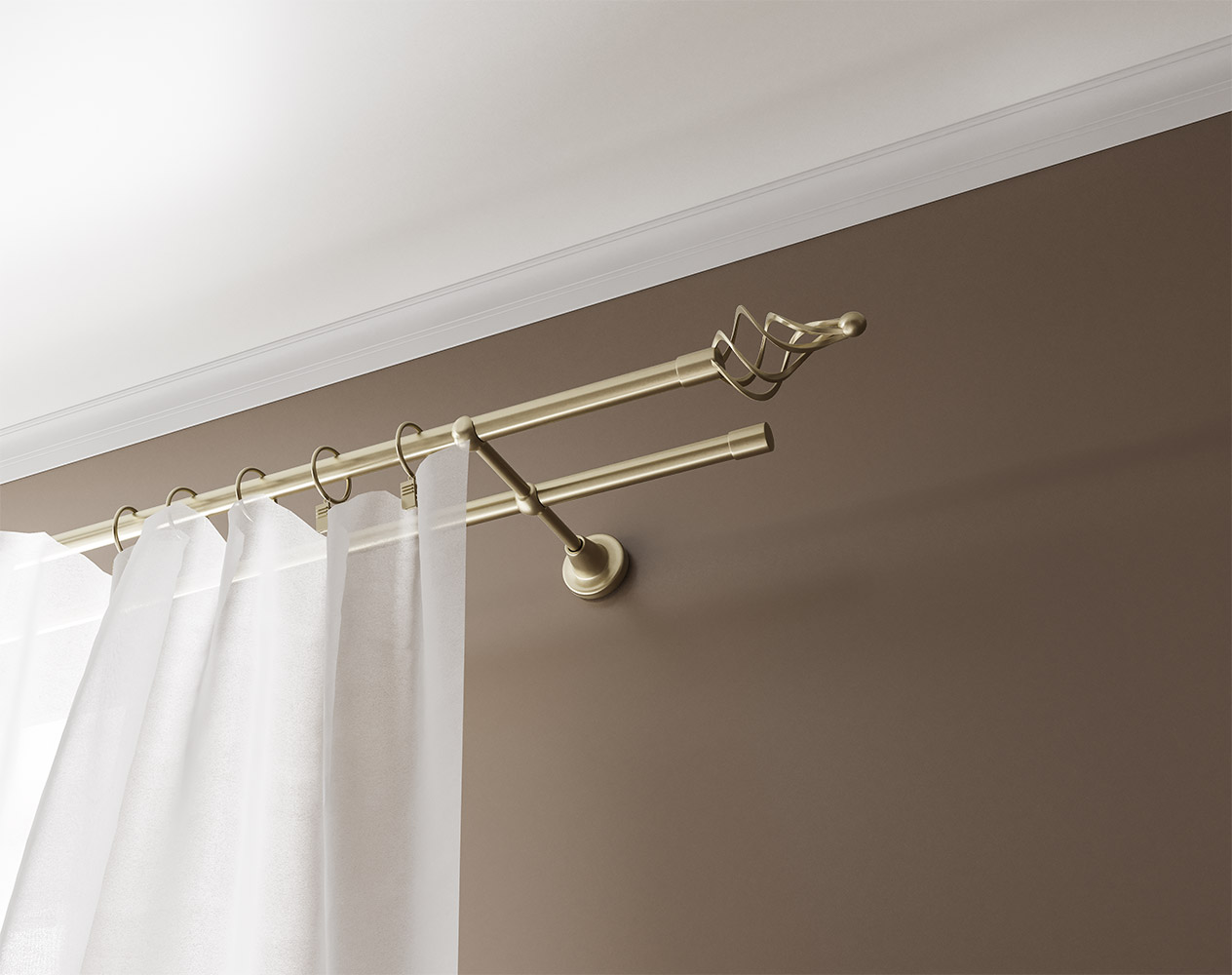
A two-row curtain rod is an option that is found in modern houses and apartments most often because of its beauty, convenience and belonging to the "classics of living room decoration". It is he who is almost always used in the interior of premises, ignoring three-row or single-row cornices. By the way, double-row wall metal curtain rods for curtains look very beautiful in the photo - you can find just an insane amount of interesting interior solutions.
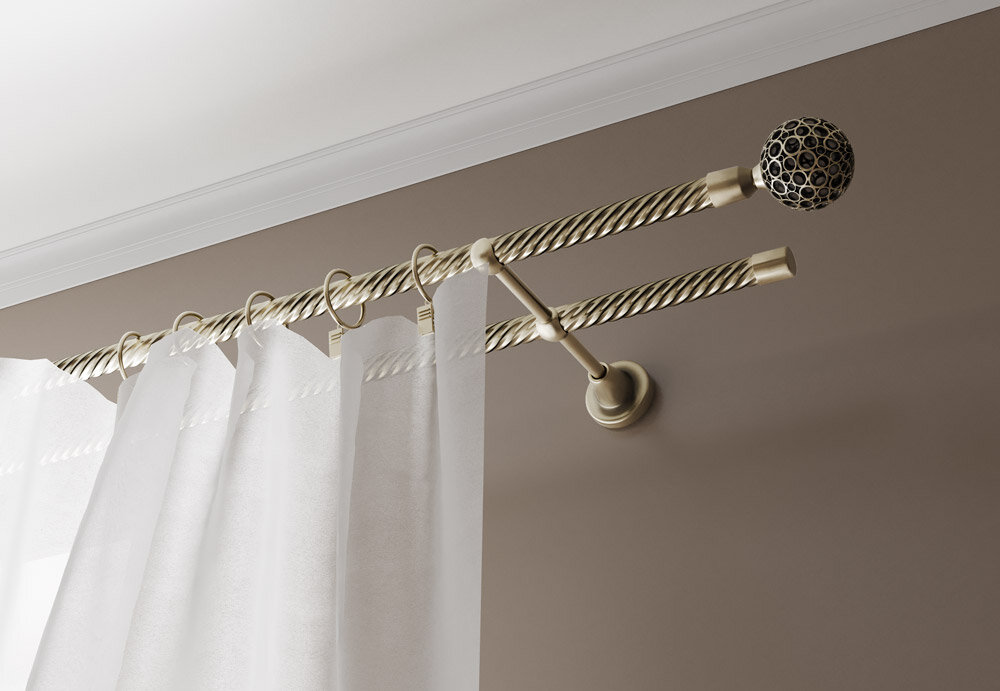
Three-row
A three-row cornice - the design is much more cumbersome than a two-row cornice, and therefore it is rarely chosen. As the name suggests, a three-row cornice has three "rows" or three rods for hanging curtain and tulle fabric on them. On such a cornice, you can hang up to six canvases, two for each rod.
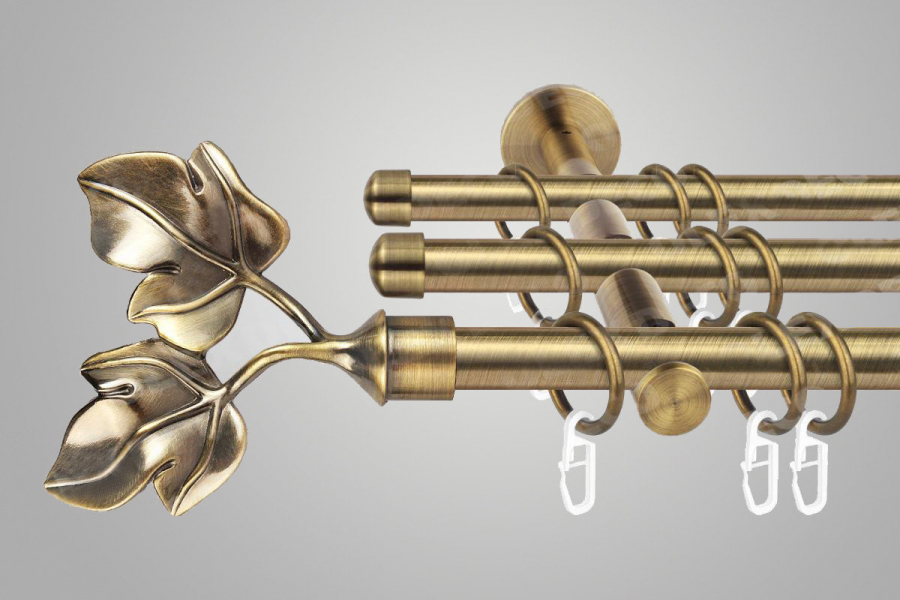
So that the structure does not look too huge, you can choose lighter fabrics to decorate the room, but this does not always look beautiful with such a large multi-tiered cornice, because its appearance creates a strange feeling “bought a large cornice, but chose thin curtains”.
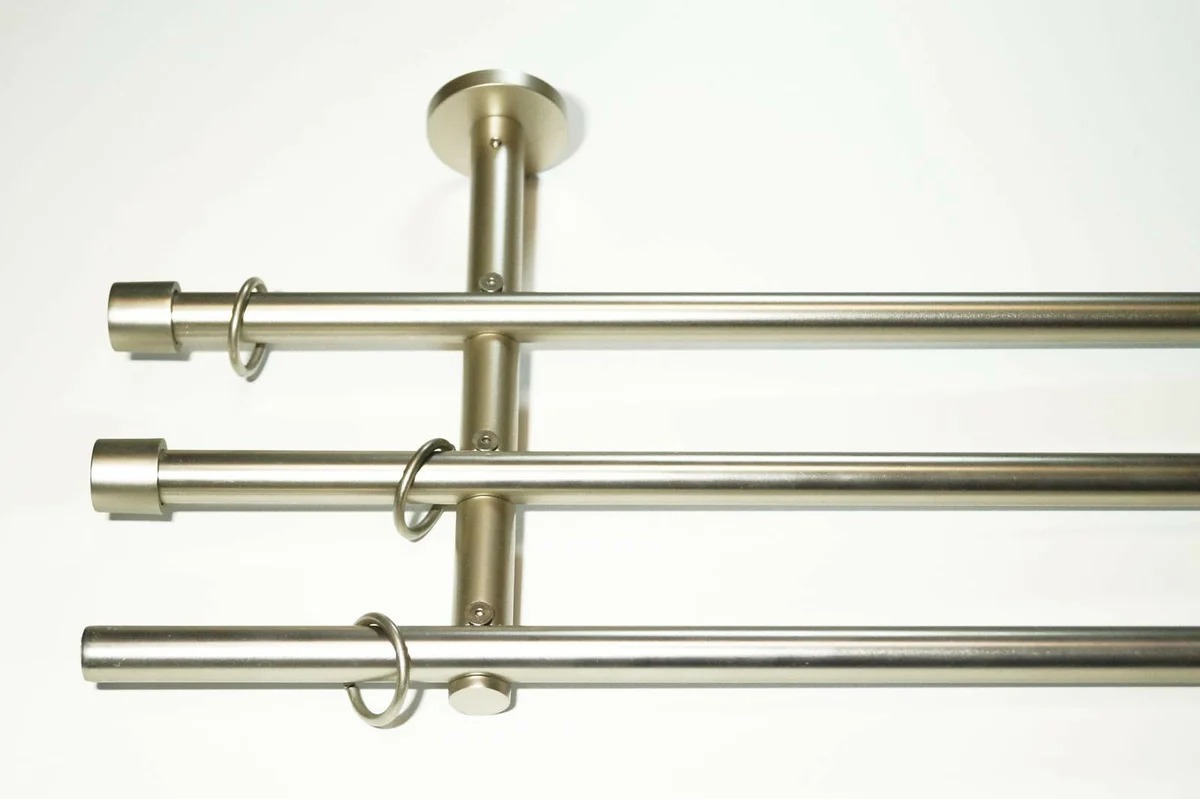
Single row
Single-row cornices are an excellent choice if there is no need to reliably close the room from prying prying eyes, since a single layer of fabric will absolutely not cope with this. Usually, single-row structures are used in such premises, which should rather be decorated with a thin cloth that slightly covers the window, rather than hide them completely and completely from sunlight. Often, single-row (or single-tiered) structures are bought in order to hang only tulle on them and nothing else, so that sunlight and air can penetrate into the room, but at the same time the window does not seem "naked" or "empty".
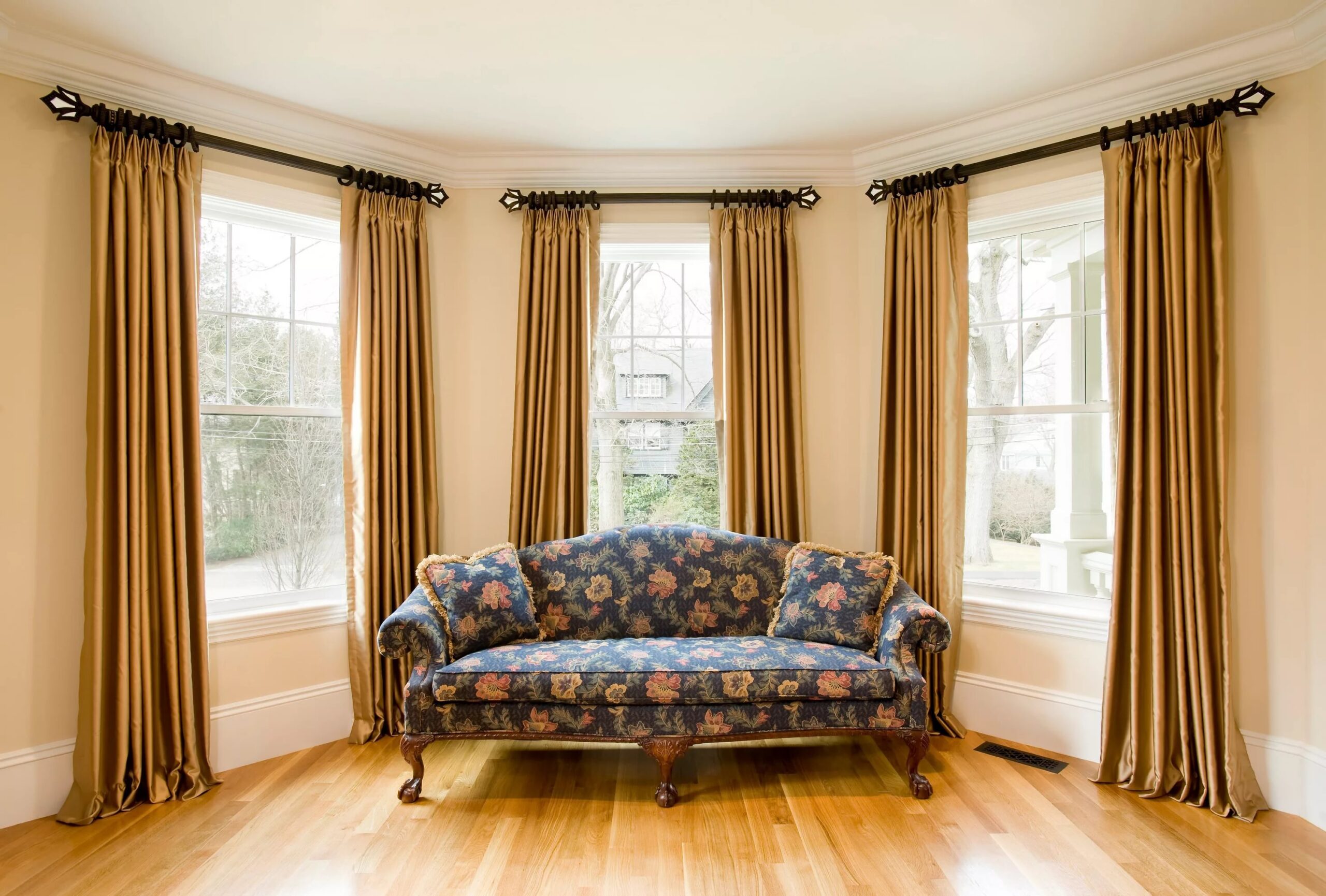
Single-row cornices are rarely found in living quarters precisely because of the impossibility of using curtains on such structures to close off the world in your room - they are completely impractical to use, they are assigned only the function of decorating the front rooms and halls.
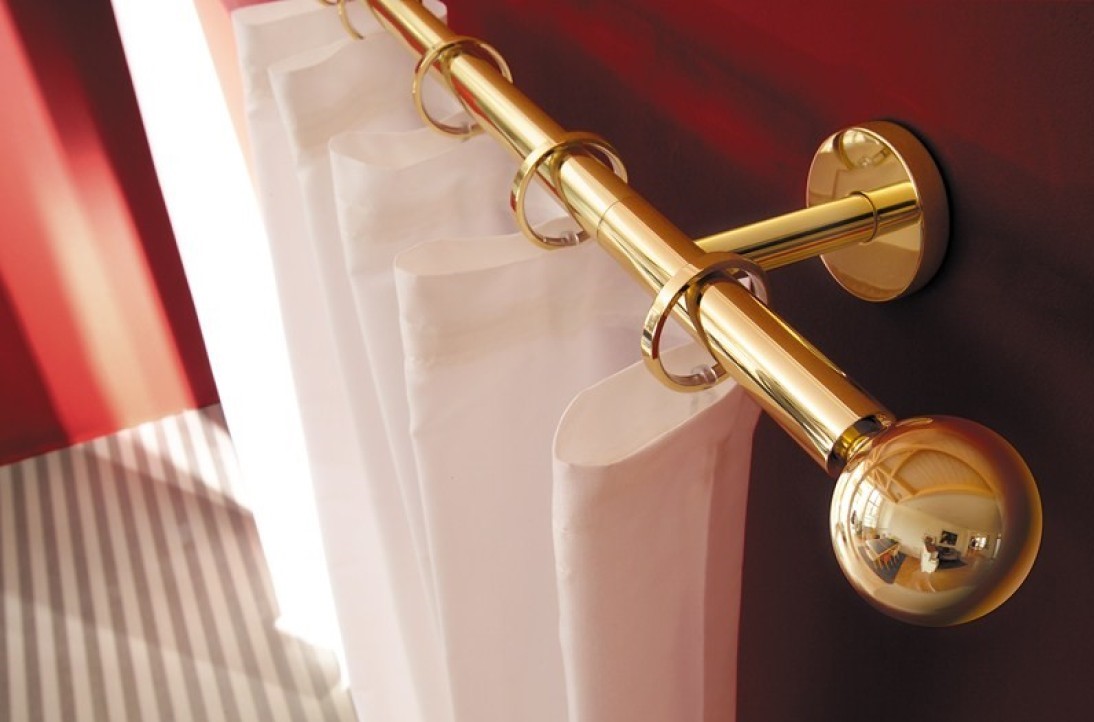
Materials for the manufacture of cornices
What materials are cornices made of? Usually in hardware stores you can find products made from:
- Metal.
- Plastic.
- Wood.
Wood and metal are "classics" that were loved in the last century and are loved now. They are beautiful, usually suitable for the design of a room if there is at least one wooden or metal thing in the interior (and it certainly is, because many people prefer to make wooden cabinets and buy metal fittings or pieces of furniture such as a bedside table / cabinet for rooms).
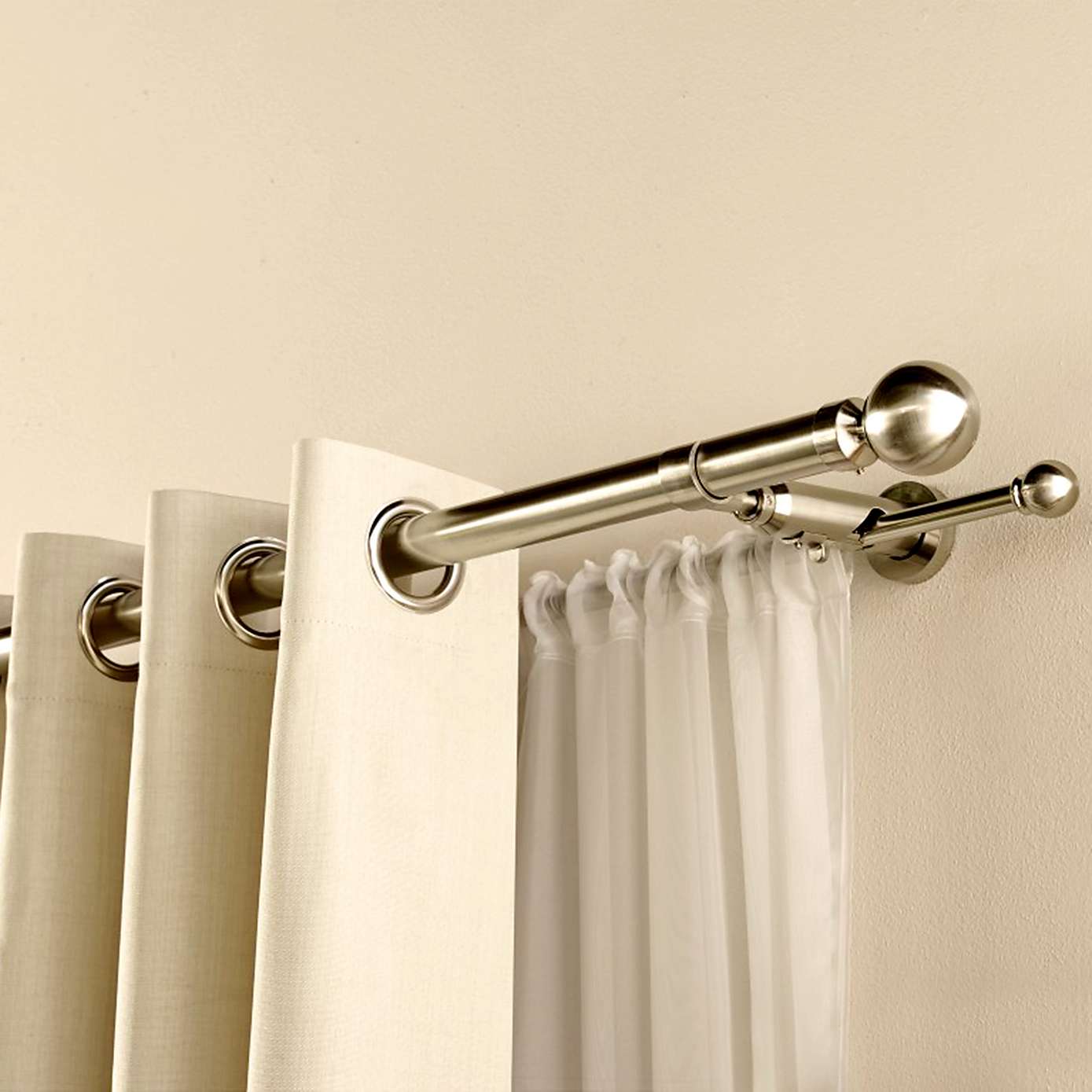
Plastic cornice is also a common option, first of all, because of its neutral appearance, and secondly, because of its very low cost. Compared to wood and metal, plastic structures are much cheaper and therefore are now in great demand.
How to assemble a double-row curtain rod (single-row or three-row)
How to assemble a wall-mounted curtain rod (single-row / double-row / three-row). Instruction.
- Calculate the distance for the attachment points.
- Outline the places where the cornice is attached to the wall.
- Drill holes there.
- Fix the brackets to the wall using screws and self-tapping screws.
- Each bracket must have the required number of grooves corresponding to the number of rows in the cornice (1 groove for a single-row, 2 for a two-row, 3 for a three-row).
- Insert into the grooves along the rod and fix them (tighten each groove fixing if there is such a function) on each bracket so that they do not fall out.
- If a center bracket has been made, make sure that exactly the middle of each of the used booms "fits" into it.
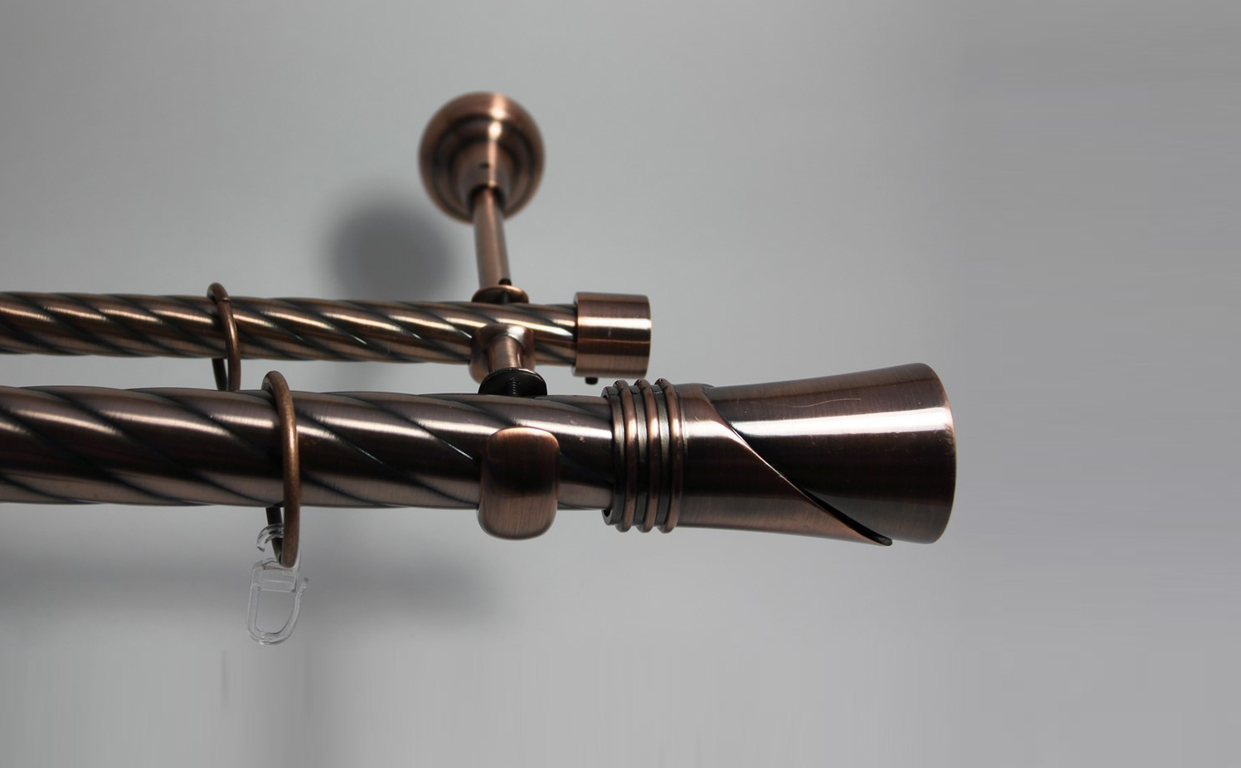
How to properly attach such cornices
Such cornices must be fixed to the wall using self-tapping screws and screws, having previously measured all the dimensions and outlined the attachment points, since the cornice should run parallel to the upper edge of the window and window opening. Also, the cornice should protrude beyond the side edges of the opening by more than 5 centimeters, so as not to let in too much sunlight and not create unnecessary gaps.
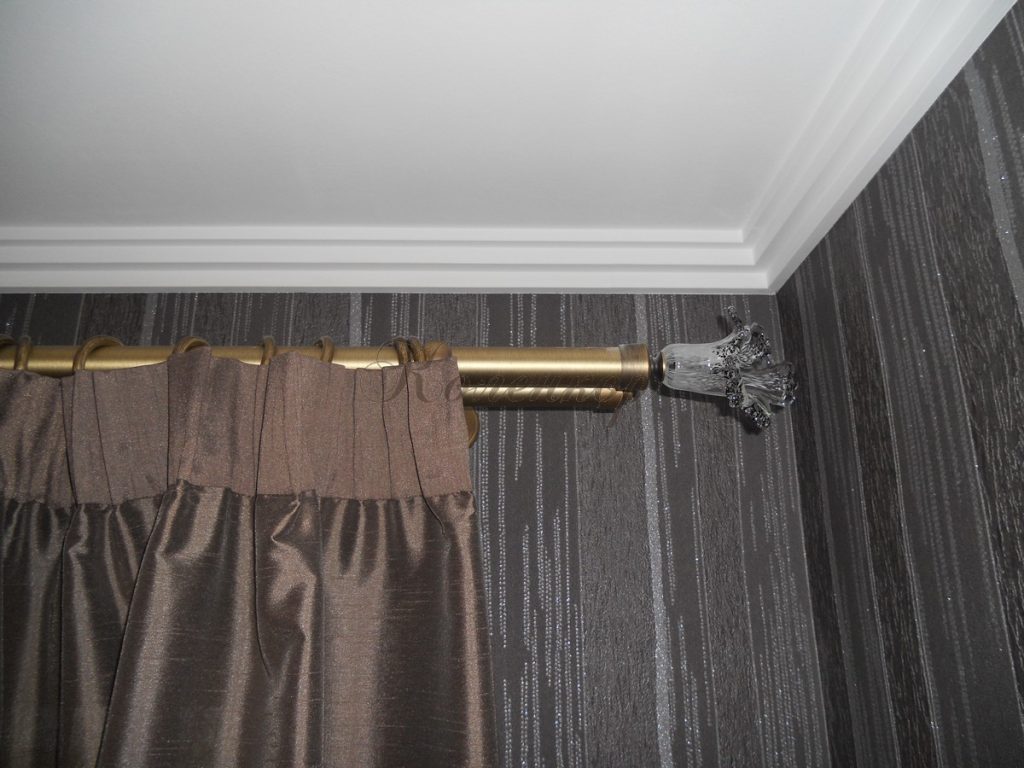
Thus, using the above data and instructions, you can select and install a wall cornice with any number of rows in each room in a residential apartment or house.
Video: installing a two-piece curtain rod
